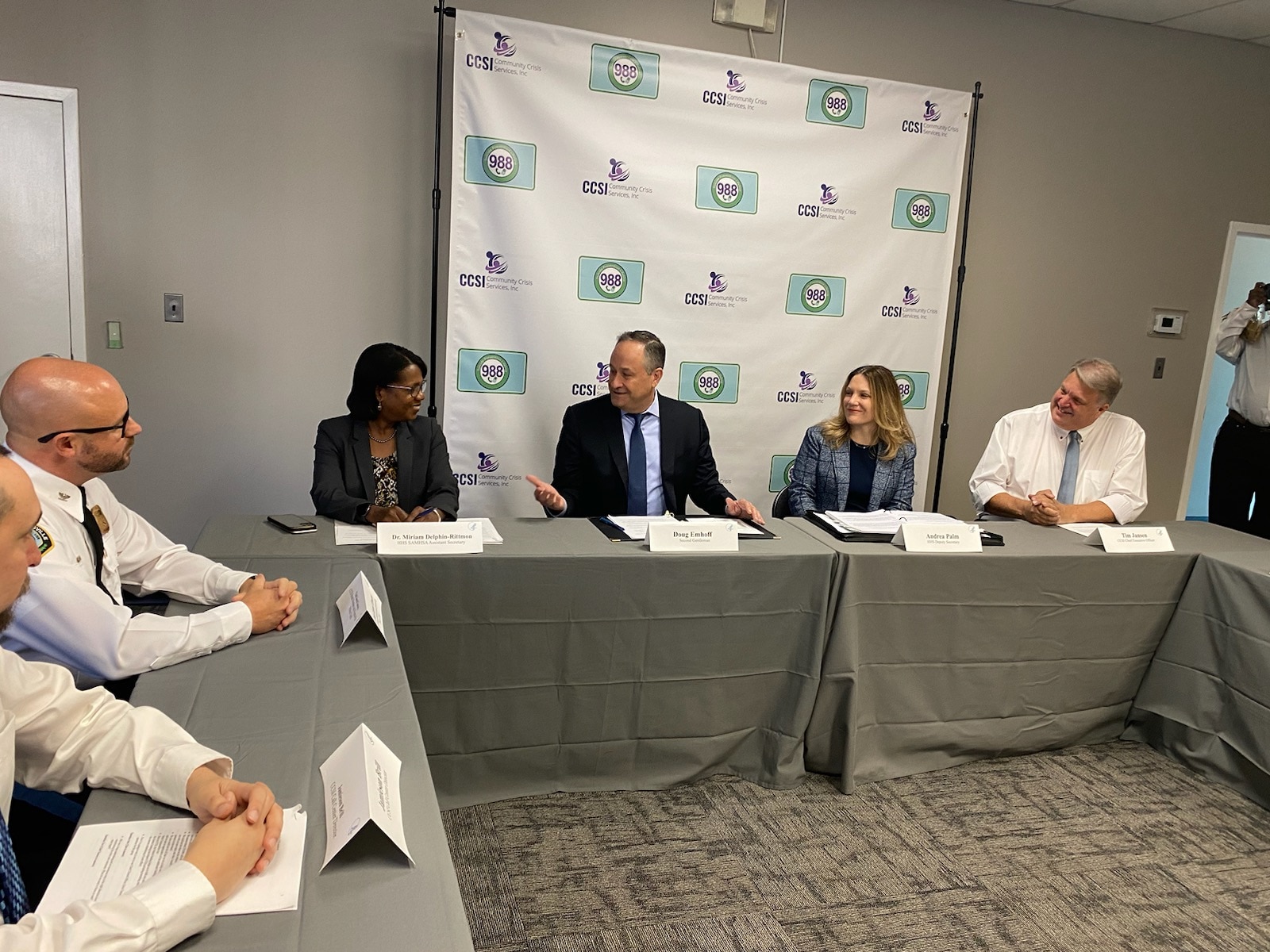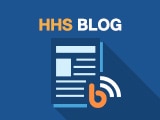202-690-6343
media@hhs.gov
HHS Awards More Than $130 Million in 988 Lifeline Grants From the Bipartisan Safer Communities Act to Address Nation’s Ongoing Mental Health and Substance Use Crises
Second Gentleman Douglas Emhoff, Deputy Secretary Andrea Palm, and Assistant Secretary for Mental Health and Substance Use Miriam Delphin-Rittmon to tour local 988 call center to see funding in action
This month, the U.S. Department of Health and Human Services (HHS), through the Substance Abuse and Mental Health Services Administration (SAMHSA), will award more than $130 million in 988 Suicide & Crisis Lifeline grants – part of the $800 million provided to SAMHSA under the Bipartisan Safer Communities Act to address the nation’s ongoing mental health and substance use crises. Today, Second Gentleman Douglas Emhoff, HHS Deputy Secretary Andrea Palm, and Assistant Secretary for Mental Health and Substance Use and the leader of SAMHSA Miriam Delphin-Rittmon will visit Community Crisis Services, Inc., a local 988 call center, to see the grant funding in action and highlight the importance of these investments. In total, the Biden Administration has invested nearly $500 million to get the 988 Lifeline up and running – through the Bipartisan Safer Communities Act and other funding streams.
“Our country is facing unprecedented mental health and substance use crises among people of all ages and backgrounds,” said Secretary Becerra. “Although rates of depression and anxiety were rising before the pandemic, the grief, trauma, and physical and social isolation that many people experienced during the pandemic exacerbated these issues. Drug overdose deaths have also reached a historic high, devastating individuals, families, and communities. The significant additional funding provided by the Bipartisan Safer Communities Act will have a direct positive impact on strengthening the behavioral health of individuals and communities across the country.”
The bipartisan legislation signed into law by President Joe Biden on June 25 strengthens the mental health care system, school safety programs, and gun safety laws – further advancing the President’s whole-of-government mental health strategy, which he launched as part of his Unity Agenda. The $800 million in funding to SAMHSA for behavioral health grants includes $250 million for the Community Mental Health Services Block Grants, $240 million for Project Advancing Wellness and Resiliency in Education (Project AWARE), $120 million for Mental Health Awareness Training, $40 million for the National Child Traumatic Stress Initiative and $150 million for the new 988 Suicide & Crisis Lifeline.
“The funding provided by the Bipartisan Safer Communities Act helps ensure there is no wrong door to access behavioral health care,” said Deputy Secretary Palm. “Programs such as Project AWARE and Mental Health Awareness Training strengthen our behavioral health infrastructure in both health care and non-health care settings. Investments from this bipartisan legislation are critical to realizing the vision outlined in the HHS Roadmap for Behavioral Health Integration.”
Today, HHS, through SAMHSA, awarded $47 million to states and U.S. territories to expand and enhance 988 Suicide & Crisis Lifeline services. Later this month, HHS, through SAMHSA, plans to award $21.1 million in 988 Lifeline Tribal Response Grants and technical assistance to improve 988 response in tribal communities, which face unique challenges to accessing technology and crisis services. SAMHSA plans to award additional funds to further improve 988 response in tribal communities early next year. Additionally, this month, SAMHSA plans to award $64.8 million to 988 Lifeline administrator, Vibrant Emotional Health, to manage and expand access to local and national 988 Lifeline crisis centers, maintain and enhance language-based services, ensure effective system routing, training, evaluation, network operational outcomes, and improve access to specialized care for populations known to be at higher risk for suicide.
“Thanks to the additional funding provided to SAMHSA under the Bipartisan Safer Communities Act, we are developing and expanding grant programs like these to help people across the country who are experiencing mental health and substance use-related distress to receive the support and care they need,” said Miriam E. Delphin-Rittmon, Ph.D., HHS Assistant Secretary for Mental Health and Substance Use and the leader of SAMHSA.
Provisional data released by the Centers for Disease Control and Prevention (CDC) indicates a rise in the number and the rate of suicides, and in drug overdose deaths, in 2021 compared to 2020.
SAMHSA’s 2020 National Survey on Drug Use and Health (NSDUH) reported the negative impact of the ongoing COVID-19 pandemic on Americans’ well-being. The NSDUH also estimated that 4.9% of adults aged 18 or older had serious thoughts of suicide, 1.3% made a suicide plan and 0.5% attempted suicide in the past year. Among adolescents ages 12-17, 12% said they had serious thoughts of suicide, 5.3% made a suicide plan, and 2.5% percent attempted suicide in the past year.
If you or someone you know is struggling or in crisis, help is available. Call or text 988 or chat 988lifeline.org.
Anyone seeking treatment for mental health or substance use issues should call SAMHSA’s National Helpline at 800-662-HELP (4357) or visit findtreatment.samhsa.gov.
Reporters with questions should email media@samhsa.hhs.gov.

Like HHS on Facebook, follow HHS on Twitter @HHSgov, and sign up for HHS Email Updates.
Last revised:



